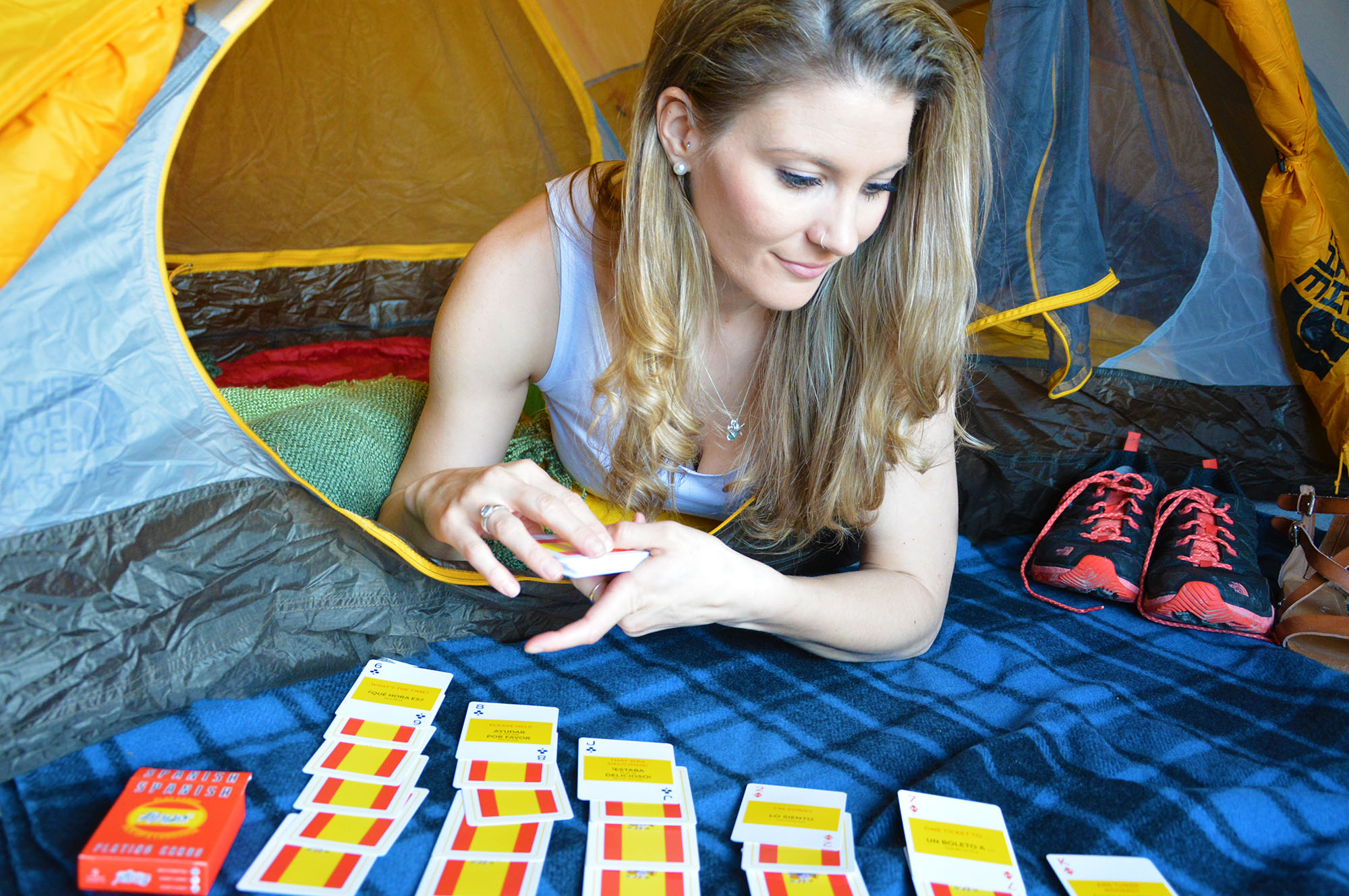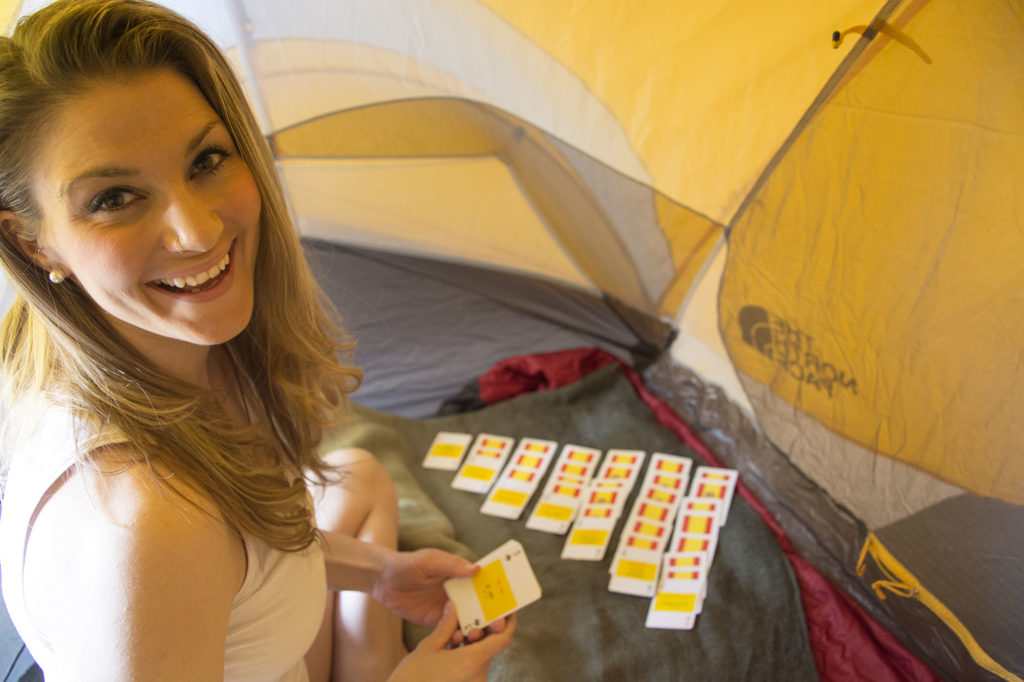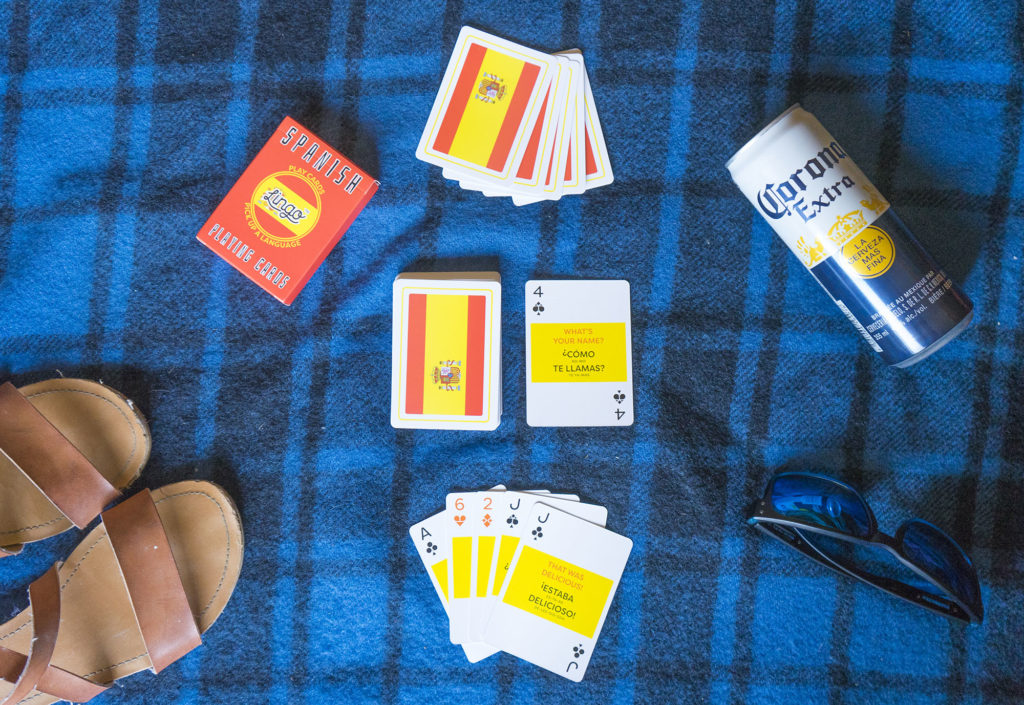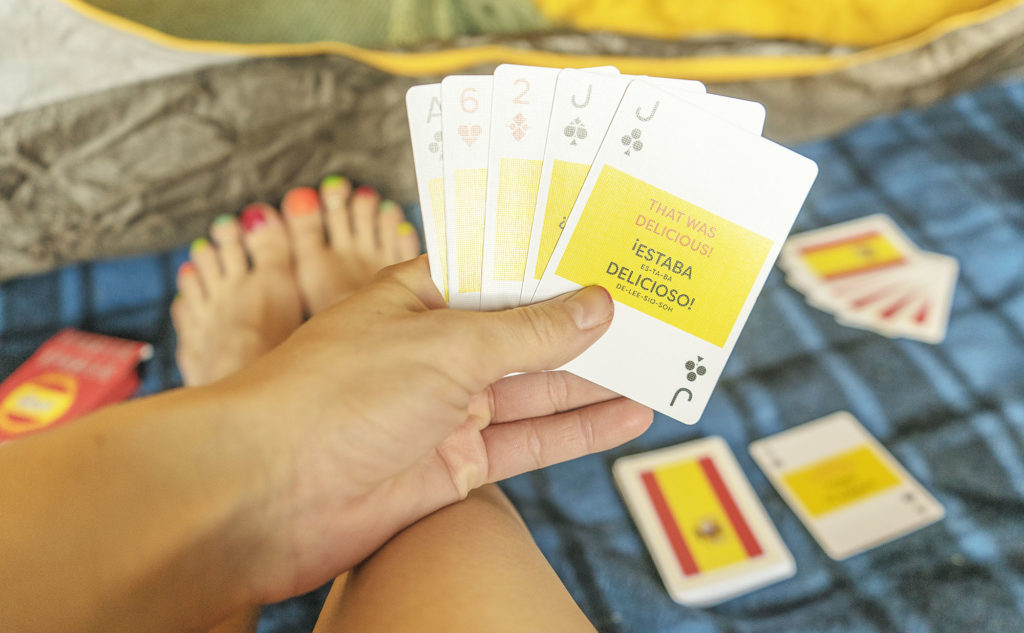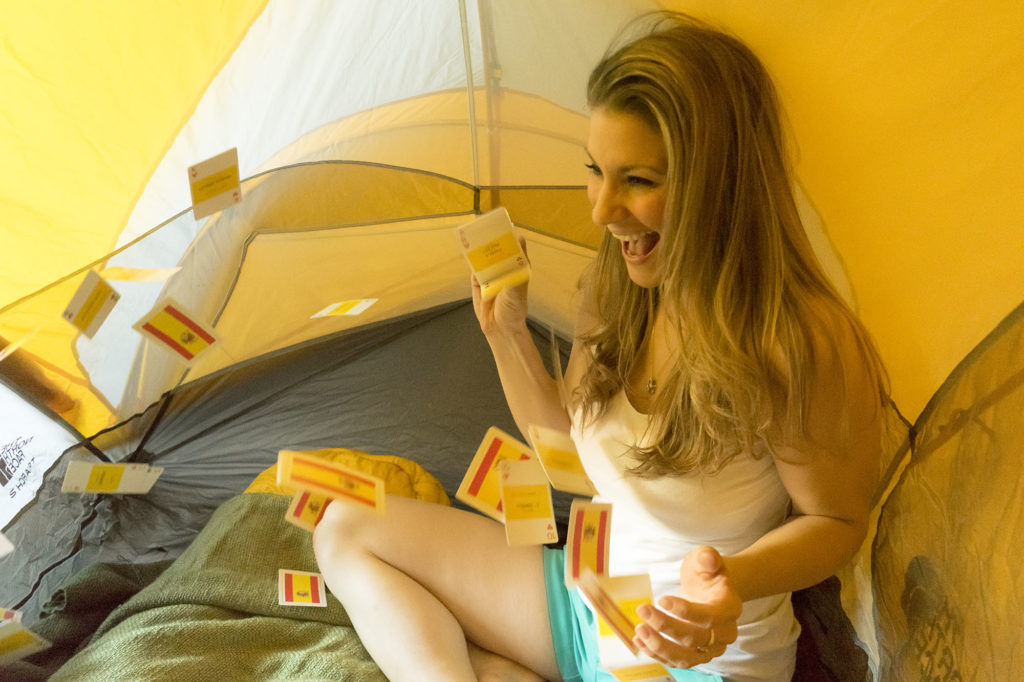*This post was created in collaboration with Lingo Cards. But as always, the thoughts, advice, stories and opinions are truthfully my own.
I climbed the stairs to board the bus, clutching a mishmash of coins and crumpled bills in my sweaty hands. They were sweaty because of the warm weather but also because I was nervous.
I knew I had to ask the bus driver how much the fare was. I mastered the phrase “¿Cuanto cuesta?” a few days earlier when I first landed in Ecuador. But I was still working on understanding and translating the different replies.
As long as I had a moment to think it through, I’d be able to understand the cost of the ticket. But the pressure of not holding up the rest of the line, sorting through the cash in my hand and counting the coins meant I was likely going to stare at him blankly for a moment or two, shove the crumpled cash his way and hope he would give me the correct change. I’d figure out what the fare was later by doing the reverse math on what was left over.
It’s one thing to be able to ask a question in Spanish, it’s another to understand the answer and then reply back. What use is it to ask where the bathroom is but not understand when they tell you? I always hope the speaker will use hand gestures when answering me.
As soon as I landed in Quito, I picked up card-stock and made myself mini flashcards. English on one side, Spanish on the other. I wrote down all the phrases and words my guidebook offered. Then I Google translated a few more practical phrases I would need to use while getting around and travelling in South America for the next six months.
“No entiendo” (I don’t understand)
“¿Donde esta…?” (Where is…?)
“¿Tienes….?” (Do you have….?)
“¿Habla Ingles?” (Do you speak English?)
“¿A cuanta distancia esta?” (How far is it?)
and most importantly, “¿Como se dice….?” (How do you say…?)
On bus rides and during quiet evenings in hostels, I would flip through the flashcards, practicing my Spanish in my head. Numbers were the most important to learn as nearly everything I wanted to do cost money. I needed to understand how much or risk getting ripped off or paying more than I wanted.
Simple greetings and answers to common questions Ecuadorians asked me were the next challenge. They always wanted to know my name, where I was from and if I was married.
Although I’m still not fully fluent, the Spanish I learned over those six months allowed me to travel less stressfully. I’ve successfully bartered the price of taxi rides, translated guided tours and museum placards. I’ve understood everything hotel managers have explained while showing me around a new hotel for the night. Having no formal training, I relied on those simple flash cards to help me out until I learned the basics and could build my vocabulary from there.
Cue Lingo Cards
When I first heard about Lingo Cards, I thought it was a brilliant way to help travellers and backpackers learn a language without having to carry flashcards held together by a ponytail. Lingo Cards combines a deck of playing cards – an essential packing item for any backpacker – with common phrases in seven different languages. If you don’t need any further convincing, consider ordering a set here in Spanish, French, Italian, German, or Japanese (or Aussie Slang and Maori).
If you want more details, read on!
All necessary phrases are on the 54 cards, including how to properly pronounce them – which is important if you want everyone to understand what you’re saying. The jokers include ten translations of numbers and colours.
The best part is a deck of cards is lightweight and easy to zip into the side pocket of any backpack or piece of luggage. For those staying in hostels or out camping, it’s the perfect way to break the ice and make new friends or pass time in the evening. (Drinking card games are pretty much mandatory when you’re a twenty-something travelling the world.)
If you’d love to have your own set of cards, you can order them through Amazon here. They’re lightweight gifts to give to a friend, son or daughter who’s off on their next adventure. Or great stocking stuffers (yup – I do realize it’s only April, just thinking ahead!)
Hopefully, they’ll help you become just as fluent in your chosen language as I am in Spanish!

